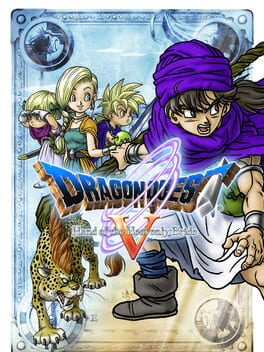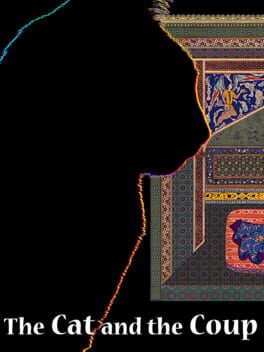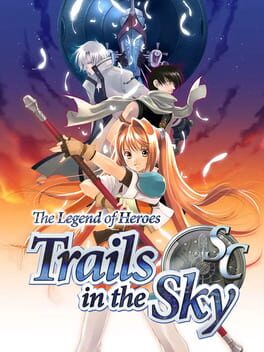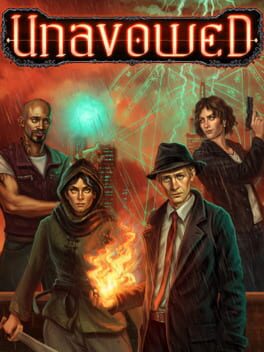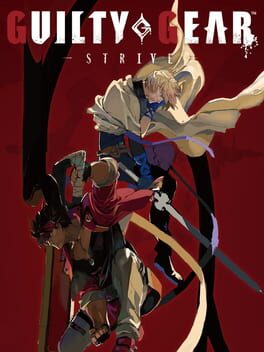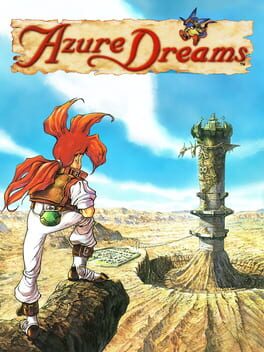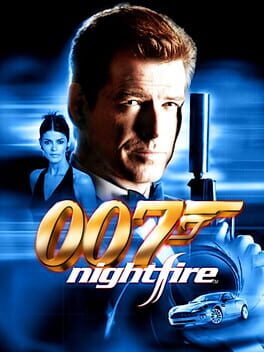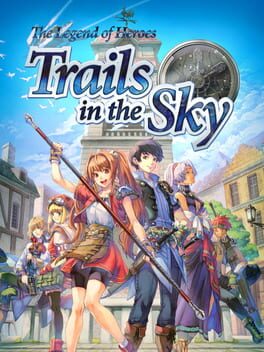37 reviews liked by Jeandank
Final Fantasy XIII
2009
The Cat and the Coup
2011
A brilliant, if not particularly interactive, artist presentation of the life and fate of Iranian Prime Minister Mohammad Mosaddegh, the CIA's facilitating of a coup against him, and his subsequent house arrest until his death. It's a beautiful, potent way to learn some history, and has encouraged me to learn more about the man and what else he did in life.
I, depressingly, do not need to learn any more about the CIA's sinister acts against other countries in pursuit of American interests.
But yes, great experience, not much of a game to it, but the weight of what it's doing is worth a lot.
I, depressingly, do not need to learn any more about the CIA's sinister acts against other countries in pursuit of American interests.
But yes, great experience, not much of a game to it, but the weight of what it's doing is worth a lot.
This review contains spoilers
I’m going to try not to repeat anything I said in my review of the first one, because there’s plenty more to talk about here, but I do have to issue a retraction: one of my points in favor of Trails in the Sky FC was that, quote, “PCs swap in and out as the story demands so it’s not stuck to the ‘adventuring party’ format.” This struck me as a key aspect of the game’s structure, which seemed to pride itself on building complex and organic social networks around its characters, and designing scenes around the characters at hand. Trails SC mostly overturns this. A quarter of the way through the game, about every party member from the last game has decided on thin pretext to follow you around the country as deputy junior Benevolent Fantasy Pinkertons, and now every time you go into a guildhall you can decide who to send into battle with you. This stretches the logic of the game to begin with, but it’s made worse by the fact that three of the optional party members are actual Benevolent Fantasy Pinkertons—people who are being paid to do this stuff—and, of the others, two of them are royalty traveling in disguise, and one of them is a ten year old girl with a gun.
Now, reckless child endangerment and warrior princesses are mainstays of the genre here, but I can’t express how little this all jives, especially since the last game was so careful to precede every fight with the ten-year-old girl by having everyone say “no, Tita, you can’t come on the fantasy quest, it’ll be dangerous” whereupon some other character says “she’s the only one who knows how to work The Device… we have no choice.” This game reintroduces her in the party by way of a Device, and then afterward she’s just like “hey is it cool if I keep hanging out with you?” and Estelle is like like “you betcha, kiddo! You’ve proven you can handle it!” even though, in-gameplay, she’s sort of a glass cannon and gets knocked out a lot. I feel less bad about the princess, who is my best healer and who has the plausibly-sketched in-game excuse that she’s traveling the country to put off her royal responsibilities—but still, almost everyone you meet knows she’s the princess now, and no one ever tries to stop her from running around fighting monsters with you.
And it’s not like these characters are just getting swept up in the ceaseless flow of events. All of this, and everything else that happens until right toward the end of the game, is underscored by a constant, overbearing lack of urgency. Trails seems to be very worried about the “problem” of RPG sidequests: how can you justify your characters hanging out and fishing and assisting stray townsfolk and monster-hunting when there’s also a big civilizational-stakes plot going on at the same time? Now, there are several possible answers to this question, one of which is “who gives a shit?” Let Cloud breed several generations of chocobo while the meteor hurtles toward the planet; no one cares! Other answers, perhaps more satisfying to the developers’ weird sense of propriety, might be to construct your sidequests so that the characters have diegetic reasons why they may or may not want to do them—emotional stakes or non-game-abstract rewards—so that the player can make decisions as to what to prioritize from either a mechanical or a roleplaying perspective. This is fundamental game design, right?
None of this is good enough, or bad enough, for Trails. One of the main structural conceits of this game is that you’re a Benevolent Fantasy Pinkerton and you get to walk around picking jobs off the bulletin board in every city—which run the gamut of stock RPG quests from hunting monsters to finding lost cats to gathering ingredients etc—and then cashing in your rewards. So pretty much everything you’re doing, including the main storyline, has this aspect of job-well-done professional abstraction; the intended effect is basically to merge the reward loop of a traditional JRPG and a pleasant lazy farming-simulator-type game. In order to facilitate this, your B.F.P. handlers are constantly (very nicely) reminding you of the jobs on the board, and will actively insist that the main quest isn’t going anywhere if you want to stick around town and do some odd jobs or just hang out. “Things are quiet now, and we have some time to kill,” goes the refrain at the end of every chapter.
But Matt! you ask. Weren’t you promised, and didn’t you mention in your previous review, that that first game was all just nasty ol’ setup, and that this second game was going to hit the ground running with the central story of the franchise? Haven’t our enemies Loewe and Weissman revealed themselves, and sworn to strike imminently against the poor defenseless Liberl Kingdom? Hasn’t the F I R S T B A R R I E R T O T H E A U R E O L E been deactivated already by their nefarious machinations? Worse, hasn’t your brother-slash-lover, Joshua Astray, vanished on a quest for vengeance-slash-redemption, and haven’t you sworn to find him and bring him home? As to the last question, Trails SC is quick to answer: don’t sweat it. As with the missing dad in the first game, everyone is constantly assuring Estelle that Joshua is probably fine, and this time we even check in on him between chapters—hanging around in the woods or in an airship mournfully playing his harmonica—to assure the player that he’s fine. Actually, we pick up the game by shipping Estelle off to a secret B.F.P. training camp for three months, where she trains to make sure that she’s really really ready to go looking for Joshua whenever she decides to get around to it. Shortly afterward, she actively gives up on this plot hook, and starts telling everyone in turn that Joshua is probably fine and will probably come back home on his own time, like a cat that wandered off. She is right about this.
And if Estelle was ever worried about Professor Weissman and the evil Enforcers of his Society Of Ouroborous, the first half of the game is pretty much one long lesson in how little anyone actually has to worry about these guys. This section—which is, I’m pretty sure, about as long as the entire first game—is entirely based around a structural conceit (we love our structural conceits!) that’s doing some work I would describe as “pre-setup.” Every chapter you go to one of the same cities from the first game, where some weird phenomenon is happening, and then you learn that the weird thing—minor earthquakes! a sleeping sickness! ghost sightings!—is the result of a new Enforcer Of The Society Of Ouroborous running an “experiment” using a G O S P E L O F T H E A U R E O L E. Once you track down the culprit, they will sort of wave at you, introduce themself and their deal (like the Legion of Doom, each one of them is an opposite number to one of the supporting cast members, with some past or present connection to them that doesn’t wind up mattering), and then stop their experiment and make you fight a robot or something as a distraction and then leave. Invariably, the threat posed by these evil schemes is like the threat of kids riding dirt bikes past your house: someone could be hurt! “Well, I’m glad no one was hurt,” says the local B.F.P. operative at the end of each of these chapters, “but it’s over now. I hear they’re a little short-staffed in City N+1, so you might want to head over there, but there’s no rush! Why don’t you check out the big board, or just do some shopping?”
As I said before, I really didn’t find the first game that “setup-y;” it was boring, and had that same sense of non-urgency I complain of here, but there was at least a continuous escalation of stakes and scope that led to a functional, if dramatically inert, climax. But, in retrospect, I have to ding First Chapter a little, since it turns out that its “setup” fell short of introducing the antagonists, and in fact still left us with a debit of 25 hours of “setup” before the bad guys could come within arm’s reach of actually hurting a human being on purpose.
What’s that, reader? You detect a note of playful cleverness in the structural conceit? An earthquake machine, an illusion machine, a rock that mind-controls dragons: this is sort of a heist-movie thing, isn’t it? You see all the components of the criminals’ plan before you get to see it all come together in the back half? That’s pretty fun! Reader, it breaks my heart to tell you that literally none of this stuff is mentioned after chapter 5.
Once you’ve done all your shopping and exchanged professional references with all five of the new villains, the narrative does in fact get a bit more juice, as the Enforcers of the Society of Ouroborous swoop in and start doing real damage: slightly injuring minor side characters, knocking them unconscious, locking them in little jail cells. Shortly before I reached this point, starting to suspect that I’d been played for a rube by an overenthusiastic anime-adjunct fandom—a mistake I swore I’d never make again after watching almost a hundred episodes of Bleach in eighth grade—I overcame my spoiler aversion and Googled “trails characters die ever.” I found a Reddit thread where some poor soul who had already played like five of these games said, quote, “as much as everyone praises the world building & in-depth development of characters and their interactions (points I agree with), I'm gonna have trouble keeping my suspension of disbelief if no one of importance ends up dying. I'm old enough to realize being edgy, violent or killing characters off for shock value does NOT equal mature storytelling...but I also strongly believe that you need stakes in your story; you need that to create dramatic tension.” Most of the replies informed him, basically, to surrender hope for the future games.
Is this an Avatar: the Last Airbender thing, where the Wikia lists the timeline as “Before Genocide” and “After Genocide” but the show itself can only say characters are “…gone”? Have I been getting mad at a game for eight-year-olds? Characters say “shit” a lot and there’s an evil little girl who keeps talking about ripping our intestines out, but maybe that’s just a localization thing. But no: a couple of the bad guys wind up dying at the end, and there are big goofy-looking gouts of blood in some of the combat animations; they could definitely kill off the fucking dad if they want to. These people are making a choice. The choice is rooted in the understanding that the much-praised “story” and “writing” of this game doesn’t matter at all; what matters is the volume of content. If you create one thousand characters and you rotate them in and out of the players’ eyeline for fifty hours every year or two, the players will start to make up their own little stories about the characters in their heads. Once you’ve pulled that trick, you’ve got a “fandom.” If the primary goal of your series is to hook and maintain a fandom, then killing off a character is just sinking a good investment: it’ll give the fandom one fewer little guy to be periodically reminded of. There’s probably a good seventy or eighty nerds somewhere who will abruptly look away from the screen and go outside for once if you kill off the stupid fucking dad, because the stupid fucking dad is their comfort character or they’ve otherwise constructed out of the images on the screen some tenuous fandom-reality in which the stupid fucking dad is load-bearing. Maybe they’re giving free advertising to the series by pumping out little comics where Cassius and Agate are both married to Mayor Maybelle and Walter is their son who’s in a rock band. They don’t need this version of the story validated in any way except to have all of these characters pass in front of the screen now and then. So not only do you need to keep all of them in play, you should probably avoid having them really suffer or struggle or change or do anything interesting or noteworthy or specific enough to supplant the version that might be in any particular fan’s head. Having everyone be blandly nice to one another and occasionally make a speech about how it’s our bonds that make us human is probably okay.
As an aside, since playing the first game I read Fullmetal Alchemist, which successfully pulls off the exact blend of mid-fantasy political thriller and cozy “my friends are my power” quest narrative that this is going for. This was a helpful point of reference to me, since it’s obviously unfair of me to keep comparing these to the good Final Fantasys, which A) are masterworks of the form and B) I played in high school when I was a complete emotional sponge for anything with melodrama and dragons in it. But when I come to the point of it, contrasting Trails with FMA also feels somehow unfair… I can see the faces of a thousand Trails fans staring up at me in judgment, as though by holding their franchise to the lightest standards of humor, pathos, suspense, or aesthetic beauty I am somehow missing the point… I‘m reminded of a passage from The Idiot:
“As to faith,” he said, smiling, and evidently unwilling to leave Rogojin in this state—“as to faith, I had four curious conversations in two days, a week or so ago. One morning I met a man in the train, and made acquaintance with him at once. I had often heard of him as a very learned man, but an atheist; and I was very glad of the opportunity of conversing with so eminent and clever a person. He doesn’t believe in God, and he talked a good deal about it, but all the while it appeared to me that he was speaking outside the subject. And it has always struck me, both in speaking to such men and in reading their books, that they do not seem really to be touching on that at all, though on the surface they may appear to do so. I told him this, but I dare say I did not clearly express what I meant, for he could not understand me.”
Lest you think I played this game just to torture myself, I’ll restate that the gameplay is immaculate, and I largely enjoyed playing the whole thing in twenty-minute increments over several months (windowed on the PC, using the Turbo button because I never found the separate Run button until this morning, as God intended) so long as I opened up to a fighty part and not a talky part. It’s a bit harder than the first game, which is good, and some of the boss fights are puzzley in a way that really rewards tinkering with your high-level strategy. On the con side, it’s a bit padded—there are too many variants of the same fights against giant robots, and a whole late-game boss-rush sequence you basically need to do twice—and it throws three unwanted new party members at you late in the game, which is just sort of unpleasant. One of the new party members starts off at a lower level than the protagonists and is sort of diegetically shitty and you have to use her for one quick mission, which is fine, but the other two are hyped-up power players who start off a couple levels higher than your main party, but still, frustratingly, aren’t very good. For most of the final chapter I just settled into my core party of Estelle, Joshua, Kloe, and Zin, and the latter two in particular became a huge pleasure to play—respectively complete monsters at magic and punching. So, I’m a little sick of myself for making it through two of these things, and I will absolutely never play the third one, but in the end I found my joy. Two stars.
Unavowed
2018
This review contains spoilers
Dave Gilbert and all those hanging out under the Wadjet Eye umbrella have been banging out some of the greatest adventure games of the 21st century since 2006’s The Shivah, every bit as essential a game to the canon of the genre as a Monkey Island or Broken Sword or Space/King’s Quest. The Blackwell series in particular represented (mostly) a high for them that I considered impossible to top, especially after Epiphany’s perfect closing chapter.
And yet here we are, with Unavowed. A new high for Wadjet Eye, and an exemplary specimen of what the genre can be.
A solidly written story of mysteries, magic, and many deaths is what you get for playing, but the playing itself is the true joy, using a team-building mechanic where you can take any two of an eventual four (well, five) partners with you to investigate the hellish machinations an apparent demon possession caused your player character to inflict upon New York, and each of these partners has their own moral values, distinct opinions on choices you make, and abilities for puzzle-solving, delivering something akin to Dungeons & Dragons’ moral alignments, albeit with them managing to rationalise or cope with you doing something completely opposed to your opinions.
Not that you’ll often find that being the case. By choosing certain teams, it influences you the player as a role-player yourself (and your character is even something of a choice too, as you combine gender and job for some variation, and name yourself, kinda). It makes you want to not just choose what your team-mates are suggesting to please them, but also to choose something based on their input, as the writing is so well done as to make them feel like fully-realised human beings (or half-djinn in one case) whose opinions you value.
There was one moment within the game where I had, without much thought, chosen Mandana (aforementioned half-djinn with a sword) and Vicki (ex-cop, has gun). This is a team more accepting of the ‘easy’ solution to problems, and one where I would feel less guilty for doing just that. We’d survived an outburst of unfettered creativity (long story), and had to deal with the one who inflicted this upon us. In other, similar situations, Eli (un-aging fire mage) or Logan (bestower with a child ghost attached) would pull me down to earth. But no, this was a team that could kill, and I the player wouldn’t feel guilty. Instant choice. Vicki. Bang. It felt like a natural outcome of the team chosen, regardless of the possibilities available, and that’s some storytelling magic. It’s one thing to give a player choice. It’s another to make one of those choices feel incredibly natural under the circumstances you’ve made for yourself.
And that’s the magic of Unavowed. It creates these moments with you, and that now feels like the baseline adventure games should aspire to.
And yet here we are, with Unavowed. A new high for Wadjet Eye, and an exemplary specimen of what the genre can be.
A solidly written story of mysteries, magic, and many deaths is what you get for playing, but the playing itself is the true joy, using a team-building mechanic where you can take any two of an eventual four (well, five) partners with you to investigate the hellish machinations an apparent demon possession caused your player character to inflict upon New York, and each of these partners has their own moral values, distinct opinions on choices you make, and abilities for puzzle-solving, delivering something akin to Dungeons & Dragons’ moral alignments, albeit with them managing to rationalise or cope with you doing something completely opposed to your opinions.
Not that you’ll often find that being the case. By choosing certain teams, it influences you the player as a role-player yourself (and your character is even something of a choice too, as you combine gender and job for some variation, and name yourself, kinda). It makes you want to not just choose what your team-mates are suggesting to please them, but also to choose something based on their input, as the writing is so well done as to make them feel like fully-realised human beings (or half-djinn in one case) whose opinions you value.
There was one moment within the game where I had, without much thought, chosen Mandana (aforementioned half-djinn with a sword) and Vicki (ex-cop, has gun). This is a team more accepting of the ‘easy’ solution to problems, and one where I would feel less guilty for doing just that. We’d survived an outburst of unfettered creativity (long story), and had to deal with the one who inflicted this upon us. In other, similar situations, Eli (un-aging fire mage) or Logan (bestower with a child ghost attached) would pull me down to earth. But no, this was a team that could kill, and I the player wouldn’t feel guilty. Instant choice. Vicki. Bang. It felt like a natural outcome of the team chosen, regardless of the possibilities available, and that’s some storytelling magic. It’s one thing to give a player choice. It’s another to make one of those choices feel incredibly natural under the circumstances you’ve made for yourself.
And that’s the magic of Unavowed. It creates these moments with you, and that now feels like the baseline adventure games should aspire to.
Guilty Gear: Strive
2021
It always feels weird reviewing a fighting game because it's entirely up to the player what counts as 'finishing', what counts as a complete enough experience to review, and what stones can be left unturned.
I have put in the time, finished the extensive turorials, built up a nice win/loss record, finished arcade mode, and done a bunch of fishing. I have not played story mode, or played as a single character other than I-No outside of the tutorials.
So... not a complete experience. But what I got to enjoy instead was a fantastic guitar witch simulator, with chunky hits and simplified mechanics that make for the best I-No experience I've ever had. An absolute joy, and a wonderful way of getting all up in gender feelings because who doesn't wish they could become a beautiful witch with an angry hat.
Highly recommended if you have femme-oriented dysphoria, enjoy chunky feeling fighters, or hated how it was a half-circle input to stroke in Xrd.
I have put in the time, finished the extensive turorials, built up a nice win/loss record, finished arcade mode, and done a bunch of fishing. I have not played story mode, or played as a single character other than I-No outside of the tutorials.
So... not a complete experience. But what I got to enjoy instead was a fantastic guitar witch simulator, with chunky hits and simplified mechanics that make for the best I-No experience I've ever had. An absolute joy, and a wonderful way of getting all up in gender feelings because who doesn't wish they could become a beautiful witch with an angry hat.
Highly recommended if you have femme-oriented dysphoria, enjoy chunky feeling fighters, or hated how it was a half-circle input to stroke in Xrd.
Azure Dreams
1997
I asked for a Playstation for Christmas when I was 7 and my mom asked the guy at Best Buy what was a good Playstation game and he had her buy me Azure Dreams of all things. That guy changed the course of my life. Absolutely perfect roguelike/Pokemonesque/anime babe dating sim, spoiled me for everything else in any of those genres.
One of my uncles forgot to get me a Christmas present one yera when all my other uncles did, and he was hosting, so he just told me to pick out any video game from his shelf. That’s how I came to own Nightfire. Later there was a brief period where my friends and I would just play that one map with the good Capture the Flag over and over again. Pretty good stuff
Edit: if you’re finding this in 2023 or later, I played the second fucking game.
The gameplay here is immaculate. Pure JRPG goodness, if a little on the easy side. No wasted mechanics, winning is fun, losing is fun, random encounters and boss fights are all fun. The money/equipment economy feels balanced all the way through, which is incredibly rare for this sort of thing. There’s no minigame chaff except for one unbelievably bad stealth section. Normally immaculate gameplay should guarantee a three-star review, but this clearly /wants/ to be a story-focused game above all else, so I have to underweight the fighty stuff.
I can see where people get confused and think this is a good game, story-wise, because it has the structure of a much better game. There’s a lot of sort of baseline stuff that suggests a lot of care went into designing this as a game that could tell a complex story through lots of different kinds of scenes. PCs swap in and out as the story demands so it’s not stuck to the “adventuring party” format; there’s a certain deftness to the blocking with the little sprites that gives a lot of flexibility to the talky bits; and it’s /very/ talky—these games are famous problems for localizers, I guess, because every little JRPG-type man-on-the-street interaction is a novel and changes contextually every time a character so much as sneezes. It’s all suggestive of a game that’s very patient, that does a lot of “worldbuilding” and character work, and is setting up something more complex than the normal get-the-boys-together-and-fight-God JRPG plot.
But it’s not! The story and the character work are, in practice, /incredibly/ bad here—pretty bad even by video game standards. A comment you’ll see about this game is that it’s unfortunately a bit boring because it’s doing all this patient worldbuilding and setup work rather than getting to the story; this is false. In fact, at the end of the game the kingdom has been taken over by sinister conspirators whose palace coup is actually a front for an apocalypse plot involving retrieving an ancient doomsday weapon from a secret prelapsarian robot palace beneath the castle. This is actually where most JRPGs end up after forty hours. What seems to be giving players the impression that this is not in fact happening—that the two main characters are still walking around meeting different Mayors and battling small-time Sky Bandits at the end of the game, as in the beginning—is A) this sort of ambience of “slow-burn” that the game projects and B) the fact that all of this is so completely dramatically inert.
I’ve never felt an RPG journey from “let’s go to the sewers for some training!” to “the A U R E O L E has been unleashed, and the R I N G G U A R D I AN has awakened” to be so free of conflict. These characters never really struggle. The story structure revolves more around them being /delayed/ then thwarted—there’s never really a point where they don’t know what they’re going to do next. They are constantly encountering and re-encountering incredibly helpful, friendly people who have the exact information they need. The next step in the quest is often, “let’s go to the bar to talk to X about this,” or, “Y wants to meet in the morning, so let’s go back to the hotel.” Characters do a lot of checking in on each other and relaying information, sometimes along roads full of monsters, and then eventually they find where the bad guy is and go proactively to bring them to justice.
All of this would work out fine if the scenes of characters hanging around hotels were psychologically insightful, or compellingly naturalistic, or funny, or sexy, or anything like that. Other reviews of this game on this website will suggest that this is so—a lot of “plot: 6/10; CHARACTERS: 10/10.” Anyone who thinks this desperately needs to watch an R rated movie. All of the writing here (and it’s not just the localization, which seems high-quality) is… I would define it as “sub-anime.” The “jokes” are terrible and often homophobic. Everyone’s primary character trait is how happy they are to see each other, plus maybe some plot-inert “flaw” (Schera drinks too much, but in a cool high-functioning way; Olivier is bisexual, which grosses the other characters out, but they heroically put up with it; Agate has a gruff exterior, which everyone immediately sees through to his heart of gold). There’s not a single joke that lands.
There is one main dramatic thread about which the game musters up a bit more genuine passion, and it fucking sucks: the main characters are a sixteen-year-old brother and sister by adoption, and they’re starting to develop feelings for each other. Watching this warmed-over Pornhub scenario play out completely mechanically, without an affection mechanic to jimmy or even a nominal love triangle to form an opinion on, is like a forty-hour-long sleep paralysis nightmare, in which you know exactly what’s going to happen but are powerless to prevent it. Imagine my horror when a character casually mentions that a nearby town is famous for its hot springs…
There are two other major dramatic threads: the first involves the characters’ father, who disappears in the beginning of the game. This should at least give you something to worry about, except that the game, terrified of stressing you out, keeps having characters insist that your dad is fine, or even that they just talked to him last week. He does in fact reappear at the end, completely unharmed, to tell you how proud of you he is. The other thing is Joshua’s mysterious past, which is way too vague to be of any interest, and then sort of comes out in a sputter at the end of the game. I was told that the game ends on a cliffhanger, by the way, which is such a generous definition of “cliffhanger;” a minor character reveals himself to have been evil all along, announces that everything that happened in the game was according to his plan, and then walks off with a vague promise to continue doing bad-guy stuff in the future. No cliff, no hang.
What the game is counting on is propinquity, the great ally of the game developer. If you spend enough time with these people, watching them hang out, alternately imagining that you “are” them or that they’re your friends, eventually you’ll fall in love. Clearly this has worked on a lot of gamers, and if the game were any better (say, as good as Fire Emblem: Three Houses, another game I would not describe as well-written) it might have worked on me. As it stands, I kind of like Kloe, the schoolgirl (I know, I know) character who turns out to be the secret princess and fights with a rapier and a trained falcon named Sieg. Sieg is cool, and Kloe kind of seems most convincingly like she would be friends with the protagonists. Her bit of the game includes a fascinating interlude where the protagonists are assigned (the gimmick is that you belong to “the Bracer Guild,” which is a sort of multinational benevolent fantasy Pinkertons) to attend a high school (?) to help out with a school play (??) in drag (ah, okay). I’m not sure I was ever more interested in the story than during this bit, which promises all the parapedophilic low-level sexual intrigue one expects from a different sort of game. (This is one of /two/ sequences in the game where Joshua has to crossdress, by the way; the other one involves a maid uniform, for purposes of sneaking into a palace. This all just makes me nostalgic for the edgier, more complex queerphobia of Final Fantasy VII’s crossdressing gag.) But it all fizzles out into the same chumminess as the rest of the game; all the schoolgirls agree that the siblings are made for each other and you walk around after the play meeting an array of Mayors, each of whom congratulates you on your stunning efforts.
Apropos of the secret princess, a note on the politics of this game: it’s completely unreflectively pro-royalist. The Queen of the Liberl Kingdom (yes, “the Liberl Kingdom”) is a wonderful old lady, and her granddaughter, Kloe, is a wonderful young lady. But there’s another heir, through the distaff, the queen’s nephew the Duke, who is a shitty, pampered, self-obsessed aristocrat. Kloe and the Duke have a coequal (not “contested,” just “equal,” like no one has gotten around to reading the line of succession yet, the Queen being only sixty) claim to the throne, and nasty bad actors in the military, in service to foreign interests, lock the queen in her room and abduct the princess and announce that the Duke has been made heir. Vile treason! Luckily the Benevolent Fantasy Pinkertons are here to set things to right. Now, I’m not a whiner about this stuff, and I’ll accept a benevolent princess and kindly queen, but this isn’t Zelda: it’s supposed to be a complex palace intrigue story! Maybe it should think about this stuff for even a second!
Anyway, I haven’t ruled out playing the second one eventually, because I’m a mark, and it’s supposed to be better, and the gameplay really is fun. But I’m very glad that I have regular exposure to way, way better art than this. If this is your idea of “plot pretty good, characters excellent,” I consider you a victim. Of what, I’m not sure exactly. This game, much like every villain I sliced my way through in the course of playing it,, is only the innocent pawn of something much larger and more sinister, but that I can’t spend too much time thinking about, because it’s boring and I have better things to do.
The gameplay here is immaculate. Pure JRPG goodness, if a little on the easy side. No wasted mechanics, winning is fun, losing is fun, random encounters and boss fights are all fun. The money/equipment economy feels balanced all the way through, which is incredibly rare for this sort of thing. There’s no minigame chaff except for one unbelievably bad stealth section. Normally immaculate gameplay should guarantee a three-star review, but this clearly /wants/ to be a story-focused game above all else, so I have to underweight the fighty stuff.
I can see where people get confused and think this is a good game, story-wise, because it has the structure of a much better game. There’s a lot of sort of baseline stuff that suggests a lot of care went into designing this as a game that could tell a complex story through lots of different kinds of scenes. PCs swap in and out as the story demands so it’s not stuck to the “adventuring party” format; there’s a certain deftness to the blocking with the little sprites that gives a lot of flexibility to the talky bits; and it’s /very/ talky—these games are famous problems for localizers, I guess, because every little JRPG-type man-on-the-street interaction is a novel and changes contextually every time a character so much as sneezes. It’s all suggestive of a game that’s very patient, that does a lot of “worldbuilding” and character work, and is setting up something more complex than the normal get-the-boys-together-and-fight-God JRPG plot.
But it’s not! The story and the character work are, in practice, /incredibly/ bad here—pretty bad even by video game standards. A comment you’ll see about this game is that it’s unfortunately a bit boring because it’s doing all this patient worldbuilding and setup work rather than getting to the story; this is false. In fact, at the end of the game the kingdom has been taken over by sinister conspirators whose palace coup is actually a front for an apocalypse plot involving retrieving an ancient doomsday weapon from a secret prelapsarian robot palace beneath the castle. This is actually where most JRPGs end up after forty hours. What seems to be giving players the impression that this is not in fact happening—that the two main characters are still walking around meeting different Mayors and battling small-time Sky Bandits at the end of the game, as in the beginning—is A) this sort of ambience of “slow-burn” that the game projects and B) the fact that all of this is so completely dramatically inert.
I’ve never felt an RPG journey from “let’s go to the sewers for some training!” to “the A U R E O L E has been unleashed, and the R I N G G U A R D I AN has awakened” to be so free of conflict. These characters never really struggle. The story structure revolves more around them being /delayed/ then thwarted—there’s never really a point where they don’t know what they’re going to do next. They are constantly encountering and re-encountering incredibly helpful, friendly people who have the exact information they need. The next step in the quest is often, “let’s go to the bar to talk to X about this,” or, “Y wants to meet in the morning, so let’s go back to the hotel.” Characters do a lot of checking in on each other and relaying information, sometimes along roads full of monsters, and then eventually they find where the bad guy is and go proactively to bring them to justice.
All of this would work out fine if the scenes of characters hanging around hotels were psychologically insightful, or compellingly naturalistic, or funny, or sexy, or anything like that. Other reviews of this game on this website will suggest that this is so—a lot of “plot: 6/10; CHARACTERS: 10/10.” Anyone who thinks this desperately needs to watch an R rated movie. All of the writing here (and it’s not just the localization, which seems high-quality) is… I would define it as “sub-anime.” The “jokes” are terrible and often homophobic. Everyone’s primary character trait is how happy they are to see each other, plus maybe some plot-inert “flaw” (Schera drinks too much, but in a cool high-functioning way; Olivier is bisexual, which grosses the other characters out, but they heroically put up with it; Agate has a gruff exterior, which everyone immediately sees through to his heart of gold). There’s not a single joke that lands.
There is one main dramatic thread about which the game musters up a bit more genuine passion, and it fucking sucks: the main characters are a sixteen-year-old brother and sister by adoption, and they’re starting to develop feelings for each other. Watching this warmed-over Pornhub scenario play out completely mechanically, without an affection mechanic to jimmy or even a nominal love triangle to form an opinion on, is like a forty-hour-long sleep paralysis nightmare, in which you know exactly what’s going to happen but are powerless to prevent it. Imagine my horror when a character casually mentions that a nearby town is famous for its hot springs…
There are two other major dramatic threads: the first involves the characters’ father, who disappears in the beginning of the game. This should at least give you something to worry about, except that the game, terrified of stressing you out, keeps having characters insist that your dad is fine, or even that they just talked to him last week. He does in fact reappear at the end, completely unharmed, to tell you how proud of you he is. The other thing is Joshua’s mysterious past, which is way too vague to be of any interest, and then sort of comes out in a sputter at the end of the game. I was told that the game ends on a cliffhanger, by the way, which is such a generous definition of “cliffhanger;” a minor character reveals himself to have been evil all along, announces that everything that happened in the game was according to his plan, and then walks off with a vague promise to continue doing bad-guy stuff in the future. No cliff, no hang.
What the game is counting on is propinquity, the great ally of the game developer. If you spend enough time with these people, watching them hang out, alternately imagining that you “are” them or that they’re your friends, eventually you’ll fall in love. Clearly this has worked on a lot of gamers, and if the game were any better (say, as good as Fire Emblem: Three Houses, another game I would not describe as well-written) it might have worked on me. As it stands, I kind of like Kloe, the schoolgirl (I know, I know) character who turns out to be the secret princess and fights with a rapier and a trained falcon named Sieg. Sieg is cool, and Kloe kind of seems most convincingly like she would be friends with the protagonists. Her bit of the game includes a fascinating interlude where the protagonists are assigned (the gimmick is that you belong to “the Bracer Guild,” which is a sort of multinational benevolent fantasy Pinkertons) to attend a high school (?) to help out with a school play (??) in drag (ah, okay). I’m not sure I was ever more interested in the story than during this bit, which promises all the parapedophilic low-level sexual intrigue one expects from a different sort of game. (This is one of /two/ sequences in the game where Joshua has to crossdress, by the way; the other one involves a maid uniform, for purposes of sneaking into a palace. This all just makes me nostalgic for the edgier, more complex queerphobia of Final Fantasy VII’s crossdressing gag.) But it all fizzles out into the same chumminess as the rest of the game; all the schoolgirls agree that the siblings are made for each other and you walk around after the play meeting an array of Mayors, each of whom congratulates you on your stunning efforts.
Apropos of the secret princess, a note on the politics of this game: it’s completely unreflectively pro-royalist. The Queen of the Liberl Kingdom (yes, “the Liberl Kingdom”) is a wonderful old lady, and her granddaughter, Kloe, is a wonderful young lady. But there’s another heir, through the distaff, the queen’s nephew the Duke, who is a shitty, pampered, self-obsessed aristocrat. Kloe and the Duke have a coequal (not “contested,” just “equal,” like no one has gotten around to reading the line of succession yet, the Queen being only sixty) claim to the throne, and nasty bad actors in the military, in service to foreign interests, lock the queen in her room and abduct the princess and announce that the Duke has been made heir. Vile treason! Luckily the Benevolent Fantasy Pinkertons are here to set things to right. Now, I’m not a whiner about this stuff, and I’ll accept a benevolent princess and kindly queen, but this isn’t Zelda: it’s supposed to be a complex palace intrigue story! Maybe it should think about this stuff for even a second!
Anyway, I haven’t ruled out playing the second one eventually, because I’m a mark, and it’s supposed to be better, and the gameplay really is fun. But I’m very glad that I have regular exposure to way, way better art than this. If this is your idea of “plot pretty good, characters excellent,” I consider you a victim. Of what, I’m not sure exactly. This game, much like every villain I sliced my way through in the course of playing it,, is only the innocent pawn of something much larger and more sinister, but that I can’t spend too much time thinking about, because it’s boring and I have better things to do.

